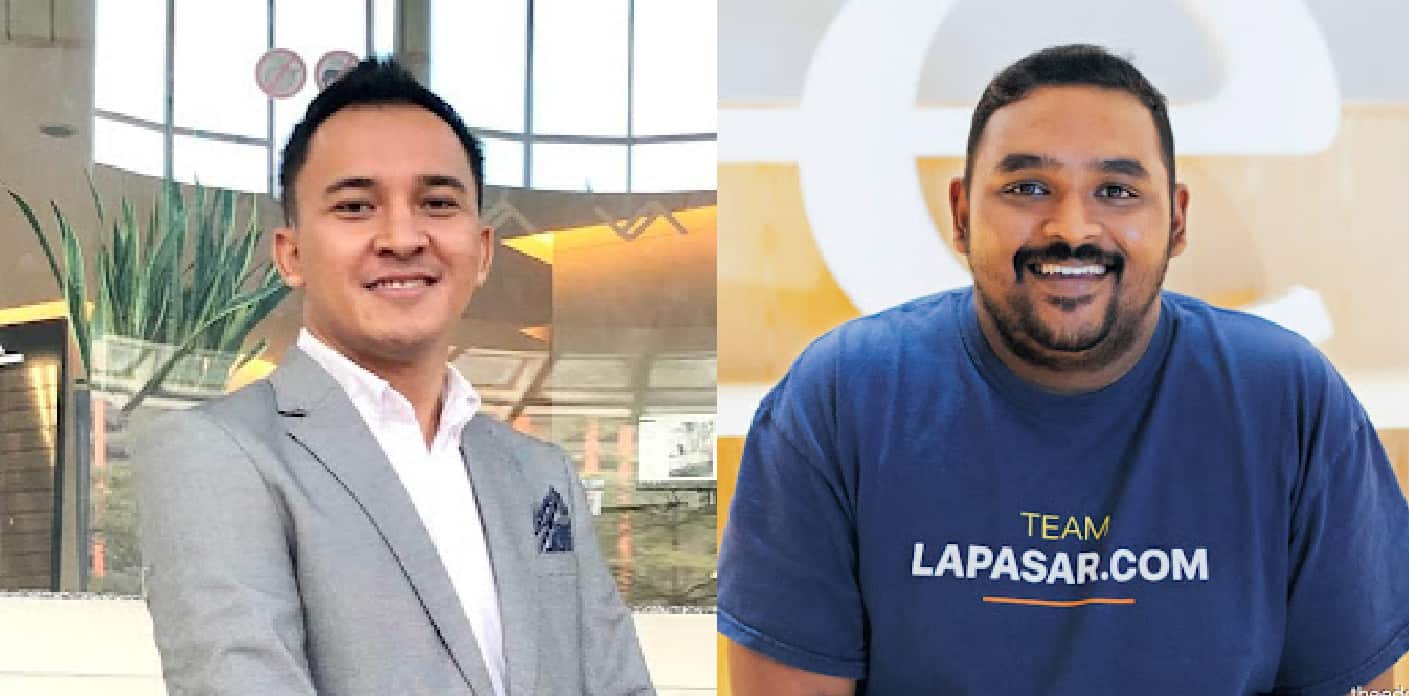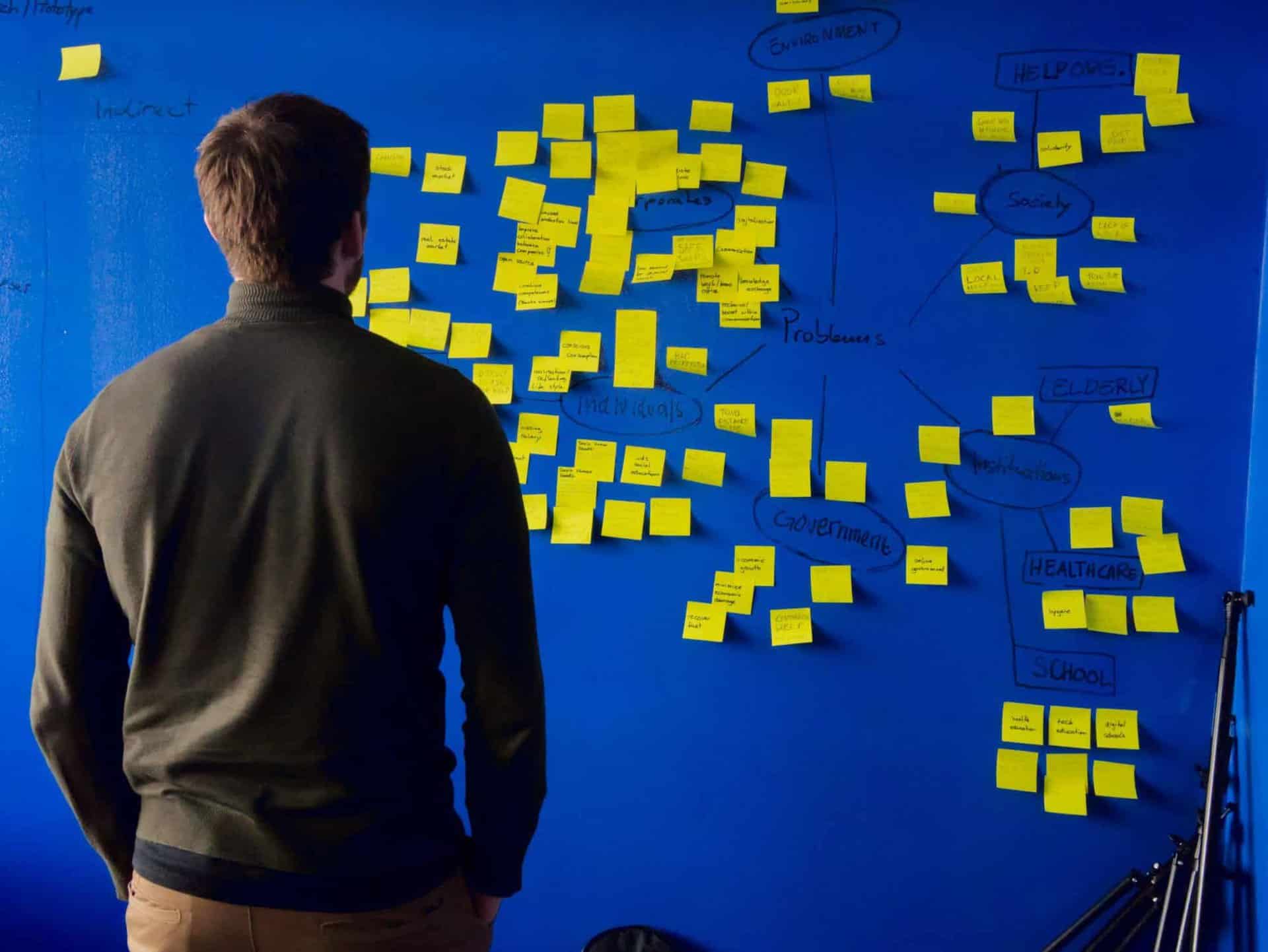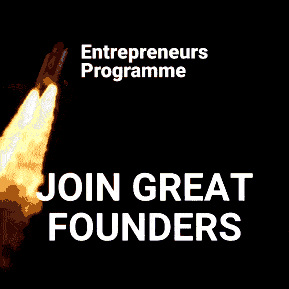“A mentor is someone who sees more talent and ability within you, than you see in yourself, and helps bring it out of you.”
— Bob Proctor
A Brief Introduction
The entrepreneur’s journey is a long, winding path that can be rewarding and lonely at the same time. Founder mentors, who have planted entrepreneurial seeds themselves, by developing their start-ups from inception until product release, understand this best; as such, their valuable advice on how to go about the process of developing start-ups can reduce the sense of isolation and confusion that budding entrepreneurs feel on occasion.
Personal Testimonies From Current Founder Mentors
Andrew Chee
Andrew Chee, the founder and Chief Executive Officer of RunningMen, which is a customizable, cost-effective corporate catering service in Kuala Lumpur, began his business while he was still in university. Since its inception in 2021, his company has worked with 8,000 clients and has catered for more than 3,500 events based within Kuala Lumpur and Selangor, proving that he is well-versed in the entrepreneurial process.
NEXEA Group Sdn Bhd (Formerly known as NEXEA Angels Sdn Bhd) was excited to bring him on board as a founder mentor who can inspire the next generation of founders. During a conversation with Andrew, he stated that he wanted to share his knowledge and expertise with the upcoming startups so that they can avoid some of the pitfalls that he fell prey to at one point in his career.

When asked about his primary reason for opting to be a founder mentor, he said, “I always believe in building helpful and meaningful relationships as part of my life goals”. We then asked him how he can assist new founders with their entrepreneurial journey. He said, “I believe that building a strong founding team is very crucial for the success of a startup, and I personally have a lot of experience with forming a team, building company culture and also recruiting the right talents into the team”.
He firmly believes that a good founder mentor should be down-to-earth, able to work alongside the new founders, and able to challenge and confront the new founders with brutal facts.
Additionally, he stated that mentors should not offer any straightforward solutions, but guide the new founders to make their own decisions instead. Andrew went on to stress the difference between founder mentors who have been entrepreneurs and those who have not, by saying “In my opinion, there is a huge difference between experts who had not experienced the entrepreneurs' journey and individuals like me who had been there. Entrepreneurs are people who are willing to take risks and go beyond to achieve greatness out of the current norm, while those who never tried on this will have less idea on what are the true elements contributing to the success of a startup”.
Ziwei Low
Ziwei Low is the co-founder and managing director of ZCOVA, a Malaysian-based top online diamond dealer. Ziwei oversees the finance and marketing department which leads the brand in the right direction. He is partly responsible for developing the brand’s hassle-free and transparent business model. Along with his colleagues, Ziwei creates better value for customers when buying diamond and gemstone jewellery.
Unsurprisingly, ZCOVA has helped over 7000 customers to save RM50 million in 6 short years. Ziwei’s track record for high-quality work is evident from his personal history; he spearheaded the family business in chemical trading, after working as an auditor for eight years in E&Y. Importantly, he took a cue from his father who advised him to always infuse integrity into his businesses. He even convinced his brother to come to Malaysia to set up ZCOVA and provide top class, unique services.

While having a conversation with us, Ziwei stated that “ founder mentors are able to help look at situations from the perspective of a founder who is still in the midst of building businesses and there are a lot of mistakes and successes that are still fresh in our experience".
“ I believe founder mentors are much more approachable as the mentees are able to relate to our struggle as we are (sic) in the same space and situation not long ago”.
- Ziwei low, founder of zcova
Ziwei was then asked about his reasons for becoming a mentor; he said, “mentees are not the only people who benefit from business mentoring. Founder mentors also experience benefits thanks to collaborative learning. By helping others improve their business skills, founder mentors may improve their own skills. They may be inspired with new ideas, meet new contacts and learn new business strategies from their mentees”.
He concisely stated that founder mentors “help develop business skills, help expand business network and provide a different perspective” when consulted. Ziwei was also asked about the criteria for being a good mentor, to which he responded, “listen and be as objective as possible”. He went on to say, “I believe there is a difference, founder mentor experience is still fresh and we are still learning along the way, it is much more relatable to the mentee,” when asked whether there is a difference between him and the mentors who have not been down the entrepreneurial path.
Anson Wang
Anson Wang, the founder of 4 companies which include Rocruit, Jouku, Jobstore and TalentCloud.ai, was voted as Asia's top young entrepreneur by Businessweek. He has consistently scaled up start-ups; Rocruit for example was one of the first vertical search engines in Asia that aimed to provide a simple and cost-effective recruitment system for employers and recruiters and was acquired by Affinity Labs in 2008. Jouku aimed to help users access and manage backup files across multiple accounts and that too was acquired in 2013 for $60 million.

Following his previous successes, Anson added to his list of achievements with Jobstore, the No.1 job distribution service provider in South East Asia and another company named TalentCloud.ai which is the first AI-powered enterprise-level human capital management software in the area.
We wanted to learn more about his personal opinions on the founder mentor program hosted by NEXEA; when asked about the benefits that new founders gain from founder mentors, he said that they can “learn from other founders of their challenges and journey”.
Anson became a founder mentor himself because he wanted to “ learn from other founders and also keep track of the new startup trends”. He went on to state that founders must be “willing to share and willing to learn from other founders” to succeed in their role. Finally, he believes that “ the experience of the startup journey is very important as he understands the founder’s challenges and is able to provide some realistic advice”.
General benefits of working with a founder mentor
All in all, the interviews with the mentors illustrated their drive to give back to the start-up community by sharing their most valuable insights, and by systematically guiding mentees along their unique entrepreneurial journeys.
A safe space to exchange opinions and concerns
They can provide mentees with a safe space to discuss concerns that they may not be able to discuss with fellow business partners, employees, friends, and family. Additionally, they can also discuss potential solutions to problems that arise; mentors can help them to look at those problems from different angles, which speeds up the time taken to make sense of those issues. This will enable the entrepreneurs to focus on what matters most instead of being bogged down by the barriers that stand in their way.
Additionally, mentors can remind entrepreneurs that facing hardships is a part of the process rather than it being a reflection of a personal flaw. This reassurance can help entrepreneurs to persist in the face of adversity; persistence, as it is commonly known, is a vital quality that entrepreneurs need to display in order to survive and thrive in the start-up sphere.
Access to a valuable network
If the mentor cannot assist a mentee with an industry-specific problem, they can connect the latter to their reliable network of fellow entrepreneurs; the more people the mentees connect with, the higher the likelihood of solving business problems.
Access to a comprehensive knowledge base
Mentors can also establish a knowledge transfer line with their mentees; they can give the latter detailed insights into career progression, occupational policies, expectations and advice on how to navigate the complexities of workplace dynamics. This can greatly benefit budding entrepreneurs as they can save the time that they would otherwise spend trying to figure out the technicalities of their businesses, on more worthwhile pursuits.
Mutually beneficial partnership
Mentorship programs are mutually beneficial endeavours because both parties can learn new business strategies from one another, improve their technical skills and gain inspiration for new projects related to digital marketing, investment opportunities, product development and so on.
A lifelong connection
The mentorship program sets the foundation for mentors and mentees to establish meaningful connections that could last a lifetime. The additional benefit of this is the opportunity for both parties to consistently tap into business resources they could utilize as their lives and businesses change.
Closing remarks
The founder mentor program is backed by several positive testimonials; it is a sustainable way for mentors and mentees to grow in professional and personal capacities.






